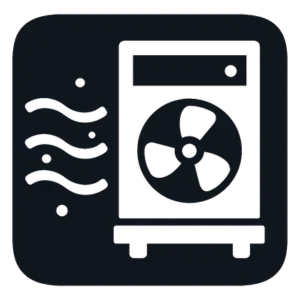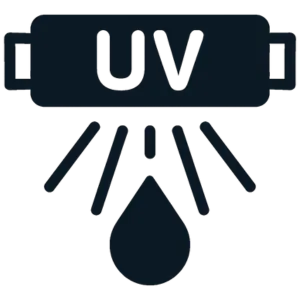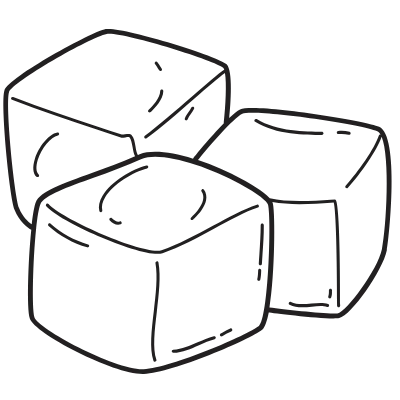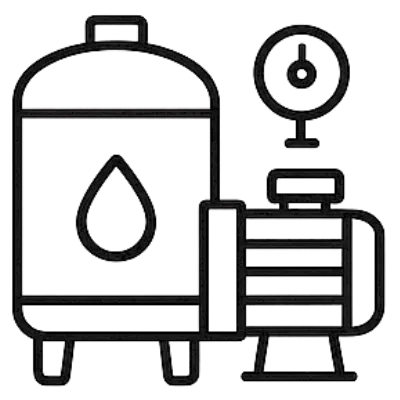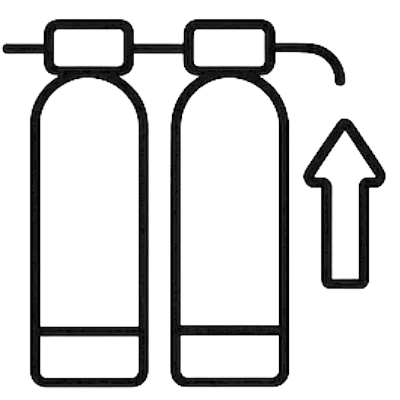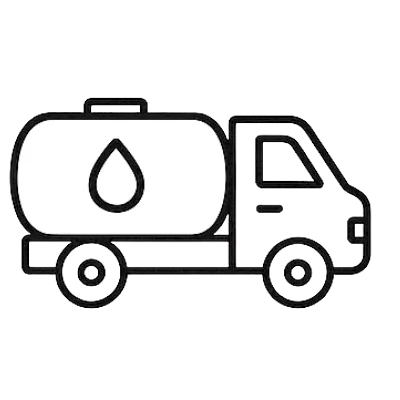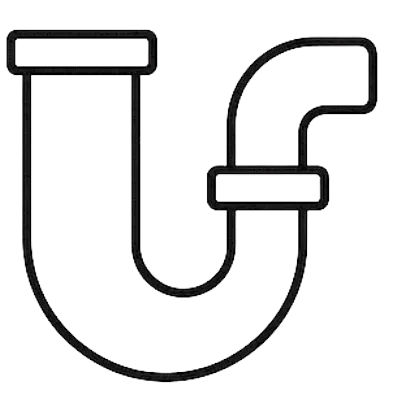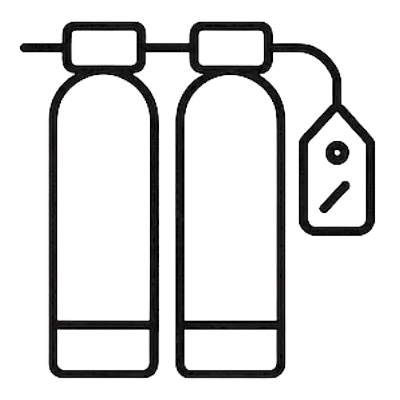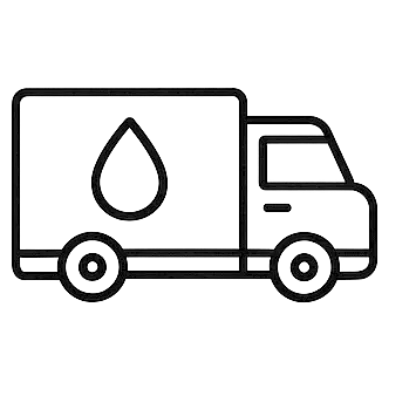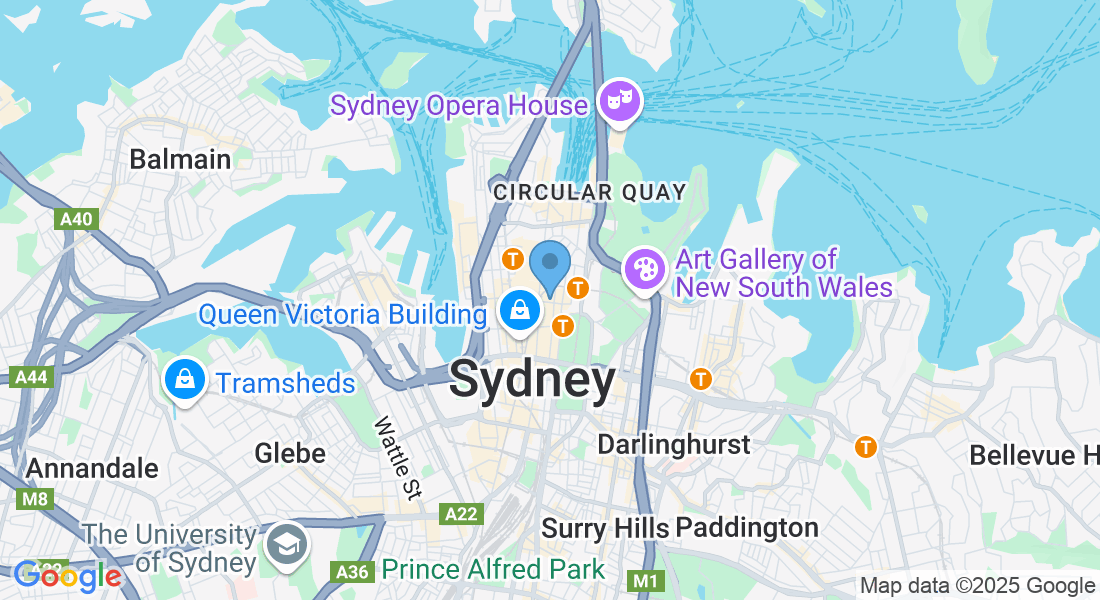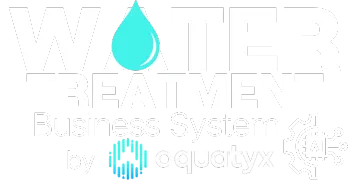Got Questions? We've Got Answers.
Frequently Asked Questions
From product performance to system selection and service support, Aquatyx - Live Demo (Dev Account 🚧 ) is here to help. Browse answers to our most common customer questions — or contact us if you need something more specific.
Is all well water the same?
The elements found in well water may vary so not all well water is the same. This is true even among wells that are within close proximity to each other. Common well water issues include sediment, dirt, hardness, bacteria, sulfur, and iron. It is necessary to have your well water tested before the proper treatment for your water can be determined.
Why does water sometimes smell like rotten eggs?
Hydrogen Sulfide is often the reason for this unpleasant smell. Hydrogen Sulfide may be created by decaying organic matter, some types of bacteria, and petroleum refining. If the rotten egg smell is only present in hot water, it may be the result of a deteriorated anode rod on a water heater system.
My water tastes and smells like chlorine. What causes this
Municipal water treatment facilities commonly use chlorine to treat water. It is often detectable in tap water due to taste and smell. While chlorine is effective for removing dangerous bacteria from the water supply, chlorine can objectionably affect drinking water and irritate eyes and skin. Since the chlorine has already served its purpose by the time water reaches your faucet, we can safely remove it from your water.
Why do rust stains occur?
Though it may not be noticeable to the naked eye, iron may be in your water. Once it is exposed to air, the iron oxidizes, leave rust-colored stains on clothing, showers, sinks, and fixtures.
Is water softening equipment required to remove iron from water?
The answer depends on the type of iron you have in your water. There are three different types of iron water – ferric, ferrous, and iron bacteria. It is necessary to evaluate the kind of iron in your water before diagnosing what is needed to solve your iron issues.
Will hard water affect my water-using appliances?
Hard water leads to build-up in plumbing and water-using appliances, creating a restricted flow of water. In appliances such as washing machines and dishwashers, the build-up can ultimately lead to the need to service or replace these items more frequently. In hard water areas, it is not unusual for the flow of running water through household water lines to be reduced to the size of a ballpoint pen head.
Does having hard water adversely impact my energy costs?
Hard water forms build-up in appliances, which can require as much as 33% more fuel to heat water in a water heater. The reason is that additional energy is required to heat hard water scales before it can heat your water. Since soft water eliminates hard water scale issues, the result will be lower energy costs.
Solution? Click here to learn about our water softener systems.
Soft water causes a “slippery” feeling on my skin. Why is this?
With soft water, it may actually seem like soap and shampoo have not completely rinsed off your skin. This sensation is caused by the fact that there is no dissolved rock in your water. The water’s natural softening and moisturizing agents can do their job, and thoroughly clean skin and hair. Conversely, this is why hard water can cause skin pores to clog with soap residue, leaving skin dull and hair feeling dry.
What are the advantages of using a Water Softener?
Water that has been treated with a water softener has many benefits over hard water:
Housework is easier without having to deal with hard water build-up on fixtures and appliances.
Clothes laundered in soft water wear better, lasting up to 30% longer.
Fabrics stay softer and whiter without the dingy gray caused by hard water.
Soft water cleans silverware, dishes, and glassware better, leaving a shinier finish.
Soaps and shampoos work more effectively because soft water allows them to lather better, enabling you to use up to 75% less product.
Organic, chemical-free healthy soaps and laundry products perform better with soft water.
Hair and skin feel softer and cleaner after bathing with softened water.
Water-using appliances such as dishwashers, washing machines, and coffee makers last much longer when used with soft water.
Want a Water Softener Installed? Click Here to Request an Estimate
How does a water softener work?
In most conventional water softeners, water runs through a tank containing resin beads saturated with sodium. When this happens, any calcium and magnesium ions in the water swap with the sodium ions so that by the time the water enters the home it is considered soft water.
Once the resin becomes saturated with the excess minerals drawn out of the water, the water softener must go through a regeneration cycle. During this cycle, sodium-rich water re-saturates the resin and the other excess minerals are flushed out. For the average home, a water softener will regenerate about once per week. The brine yank is where the salty brine solution is generated. The salt mixes with water to create a brine solution that’s flushed through and cleans the resin beads during regeneration. Once completed, the softener resumes normal operation.
Want a Water Softener Installed? Click Here to Request an Estimate
Is it possible to soften water without using salt?
Salt-free systems, as the name suggests, don’t use salt at all. These systems are not referred to as salt-free water softeners, because they don’t remove any mineral deposits from water. They work by conditioning the excess particles in the water to prevent them from building up on fixtures and appliances.
While these systems may be better for the environment, they may also struggle to keep up with high levels of hardness or larger households with more than average water consumption.
Click here to learn more about our Salt Free Water Systems
Are water softeners expensive to use?
The only household appliance that can actually reduce costs, a water softener can reduce water-heating bills by up to 29%. Soft water also requires less detergent and soap usage, so water softeners save you money on these items as well.
Want a Water Softener Installed? Click Here to Request an Estimate
Can my septic system or drain field be compromised by the water softeners’ discharge from regeneration?
Studies done in the 1970s at the University of Wisconsin concluded that salt-brine discharge from water softeners had no ill effects on the operation of typical anaerobic or newer style aerobic home treatment systems. It was also confirmed that water softener regeneration discharge did not hurt drain field soil percolation and in some cases could improve soil percolation. Septic tank effluents containing water softener effluents include substantial amounts of calcium and magnesium, which balance the effect of sodium, in addition to promoting and sustaining soil permeability. According to the study results, it is preferable to discharge water softener waste to septic systems than to separate dry wells or ditches. Learn more at www.wqa.org.
Do most water softener manufacturers offer a full lifetime warranty?
No, because it’s challenging to anticipate and cover the costs associated with long-term product maintenance and potential unforeseen issues, including changes in the water chemistry. Most water softener companies do offer a limited warranty and satisfaction guarantee.
What is the best way to have my water tested?
It is best to have well water tested for bacteria, hardness, iron, and pH. City water should be checked for hardness, pH, and chlorine. Contact us to schedule a free in-home water test so we can identify your water problems and determine the right water solution for your home.
Is reverse osmosis water safe to drink?
Yes, reverse osmosis water is safe to drink. If you’re worried about losing natural minerals during the filtration process, you can usually install an additional filter to restore those minerals.
What is reverse osmosis?
Reverse osmosis systems are one of the most effective home water filtration solutions available. These systems use a semi-permeable membrane to filter out 99% of all contaminants and pollutants, including lead, chlorine, fluoride, nitrates, pesticides, and other harmful chemicals. The membrane works by allowing water molecules to pass through while blocking larger particles such as bacteria and viruses. The system is designed to change it from its original form to something safer, healthier, and tastier. It also removes foul odors along the way, making every filtered sip all the more satisfying.
Want Reverse Osmosis system installed for your home or business? Click here
How long does installation take?
Most systems are installed in 1 day by our professional team. We'll confirm your timeline at the time of quoting.
Do I need to maintain my system?
Yes — most systems are low maintenance, but filters and salt (for softeners) need periodic refills. We offer salt delivery and optional service plans to keep things easy.
Do you service what you install?
Absolutely. Aquatyx - Live Demo (Dev Account 🚧 ) offers full support before, during, and after your install. Schedule service here.
Can I get a quote over the phone?
We can give rough pricing ranges, but for accurate recommendations we need to test your water and understand your usage. Book a test here.
Interested in Going Salt-Free?
Let’s Talk Options.
Schedule a free consultation with a Aquatyx - Live Demo (Dev Account 🚧 ) expert in OK. We’ll help you decide if a salt-free system is right for your water—and guide you to the best fit for your home.
What Kind of Water 💧 Problems Are You Dealing With?
What Kind of
Water 💧 Problems Are You Dealing With?
Your water might look fine—but small issues can lead to big problems. From strange smells to health concerns, water problems show up in many different ways. Explore the common issues Aquatyx - Live Demo (Dev Account 🚧 ) helps OK homeowners solve:
Request a Quote
Personalized Water Solution—Tailored to Your Home and Budget
Whether you're looking to buy, rent, or finance, we’ll help you find the perfect water treatment system for your needs. Request a custom quote today and take the first step toward cleaner, safer water for your family.
Find out what's in your water
INSTANT Water quality check
Get a fast, professional water test at no cost. Know exactly what you're drinking and how to improve it—no pressure, just clear answers.
Let’s Talk Water
Have Questions?
Our water experts are here to help. Whether you need advice, have questions, or just prefer to talk it through—request a call and we’ll get in touch at a time that suits you.
Still Have Questions About Your Water?
We’re here to help you make the right choice for your home.
Whether you're curious about how our systems work, what’s in your water, or what happens after installation—we’ve got answers to the most common questions our customers ask.
How do I know if I need a water treatment system?
If you notice odd tastes, odors, stains, or cloudy water—or just want peace of mind—it's worth testing your water. We offer free water testing to identify the best solution.
What types of contaminants can your systems remove?
Our systems are designed to reduce or eliminate chlorine, hardness, iron, bacteria, PFAS, nitrates, and more.
Do I need a whole-home system or just drinking water filtration?
That depends on your needs. We offer both whole-home solutions and point-of-use options like reverse osmosis.
Is installation included, and how long does it take?
Yes! Professional installation is included. Most systems can be installed in just a few hours.
What maintenance is required?
We design our systems to be low-maintenance, and we offer service plans so you don’t have to worry about upkeep.
What’s the difference between softening and filtration?
Softening removes minerals that cause hardness and scale (like calcium and magnesium), while filtration targets contaminants like chlorine, sediment, iron, and VOCs. Many homes use a combination of both. See our residential solutions.
Is my water safe to drink?
Municipal water is treated, but often still contains chlorine, byproducts, or trace contaminants like PFAS. Well water is unregulated and varies by region. Best way to be 100% sure you're drinking safe, clean water is to get a water test done and have proper filtration system in place.
Do you offer financing?
Yes — flexible financing options are available. Ask during your consultation or contact us to learn more.
Do you have questions?
Get in touch!
If you have any immediate questions or concerns, feel free to reach out to us at +18665800752. Our team is always here to assist you.
Brilliantly Better Water. Delivered.
Clean Water. Healthy Home. Smarter Solutions.
We help homeowners take control of their water quality—one faucet at a time. Whether you're dealing with hard water, strange odors, or simply want peace of mind for your family’s health, our custom treatment systems are designed to meet your home’s unique needs. Backed by expert technicians, cutting-edge technology, and a passion for cleaner living, we’ve earned the trust of hundreds of families across the region. From free water testing to full system installation and ongoing salt delivery, we make clean water simple, safe, and stress-free.

Aquatyx - Live Demo (Dev Account 🚧 ) © 2026


















